Celebrating the One-Year Milestone of Project Cheetah: Triumphs, Challenges, and Renewed Commitment
-

- by CCF Staff September 17, 2023
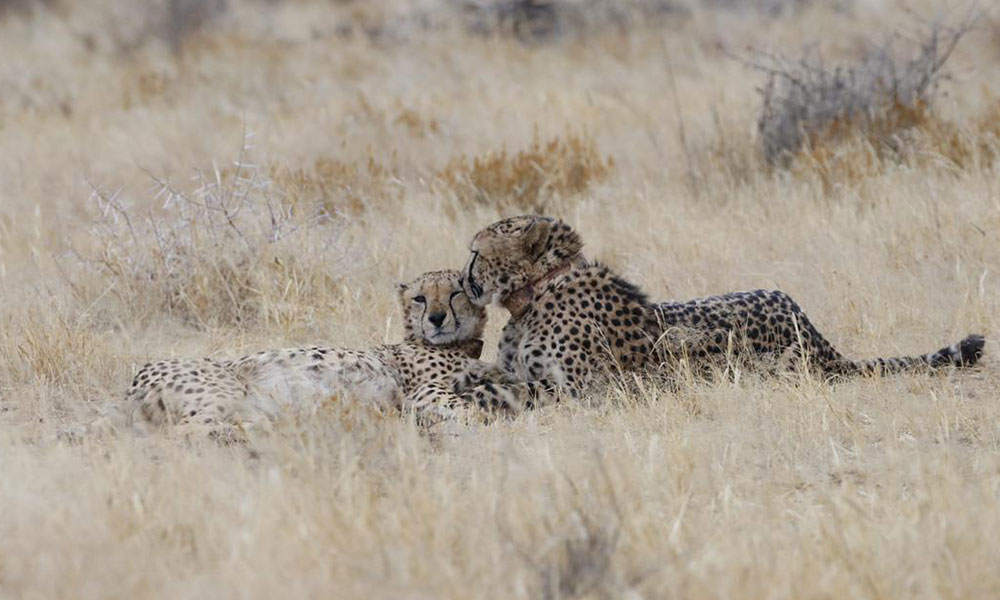
OTJIWARONGO, Namibia – 17 September 2023 – Cheetah Conservation Fund (CCF) is joining with partners and supporters around the world in celebrating the first anniversary of Project Cheetah. While the initial year of the historic reintroduction of cheetahs in India has been marked by setbacks, the Project Cheetah team remains dedicated to their mission. While the cheetahs await re-release, CCF has offered advice and new strategies to help ensure the successful reintegration of these majestic creatures into their natural habitat.
Dr. Laurie Marker, Founder and Executive Director of the Cheetah Conservation Fund, expressed the significance of this achievement, saying, “Bringing back cheetahs to India was a daring endeavor, full of challenges. We celebrated the birth of the first litter of four cubs born to one of the females from Namibia and the additional arrival of a group of 12 cheetahs from South Africa. Despite setbacks and difficulties that prompted a decision to retrieve the animals, we are leveraging these experiences to reassess strategies before the cheetahs are released once again.”
Over 12 years in the making, Project Cheetah came to fruition on 17 September of 2022 when CCF staff traveled to India to deliver a gift from the Namibian government: eight wild cheetahs. Namibia considered the “cheetah capitol of the world” with the highest density of wild cheetah, generously donated the first eight individuals to establish a new meta-population in India. The historic initiative is part of a larger, multi-year agreement to aid in the conservation of the species. The cheetahs, once a vital part of India’s ecosystem, faced a tragic decline, with the last recorded sighting in the 1950s, marking their local extinction. However, the vision of reintroducing these charismatic animals emerged, driven by a collective determination to restore ecological balance and preserve India’s biodiversity.
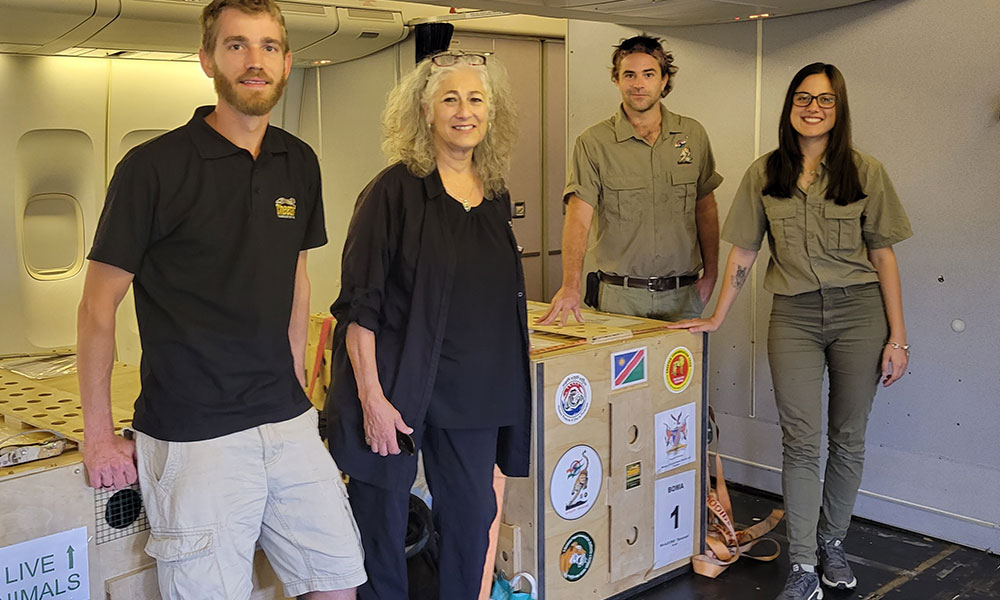

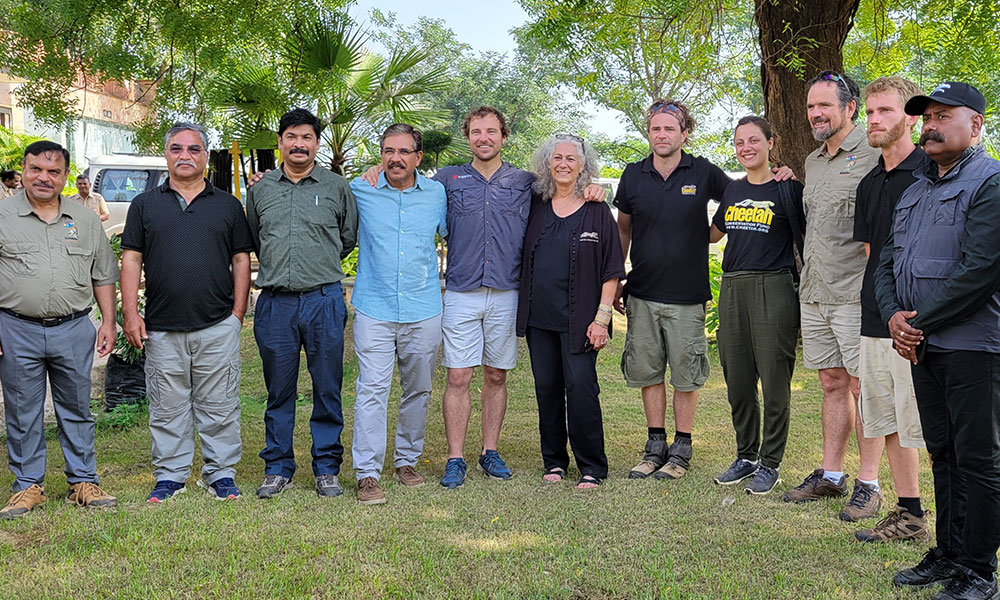
“As CCF’s International Patron, the project is on track and Namibia is proud to be a part of expanding the cheetahs’ territory into Namibia.” stated The Honorable Professor Peter Katjavivi, Namibia’s Speaker of the National Assembly.
“Bringing the cheetah back to India is an ambitious project of Government of India that intends to reestablish the species in its historic range. In this important species conservation project, the contribution of Republic of Namibia and Cheetah Conservation Fund has been immense and commendable. CCF has been instrumental in translocation of founding population of cheetahs to India and also in training the officials of Kuno National Park in cheetah management issues.” stated Dr. S. P. Yadav, ADGF (Project Tiger & Elephant) & Member Secretary, National Tiger Conservation Authority
The reintroduction process posed formidable challenges, involving the task of acclimating wild cheetahs to a habitat that had not seen this cat species for 70 years. Since the inception of the program, dedicated teams have tirelessly worked to create an environment conducive to the cheetah’s natural instincts. This remarkable journey was marked by both setbacks and successes. Despite the challenges, there has also been many positive outcomes including, the confirmation that the reintroduced cheetahs are hunting native prey species. It is indeed a matter of great management outcome to note that Siyaya and Savanah, two female Cheetahs which were wild caught and had spent substantial time in captivity in Namibia, have now remarkably adopted to the wilderness on Indian soil and have been independently hunting. As part of the rewilding process since they were released, they have shown promising signs and would be fit for release into the wild in due course following due diligence.
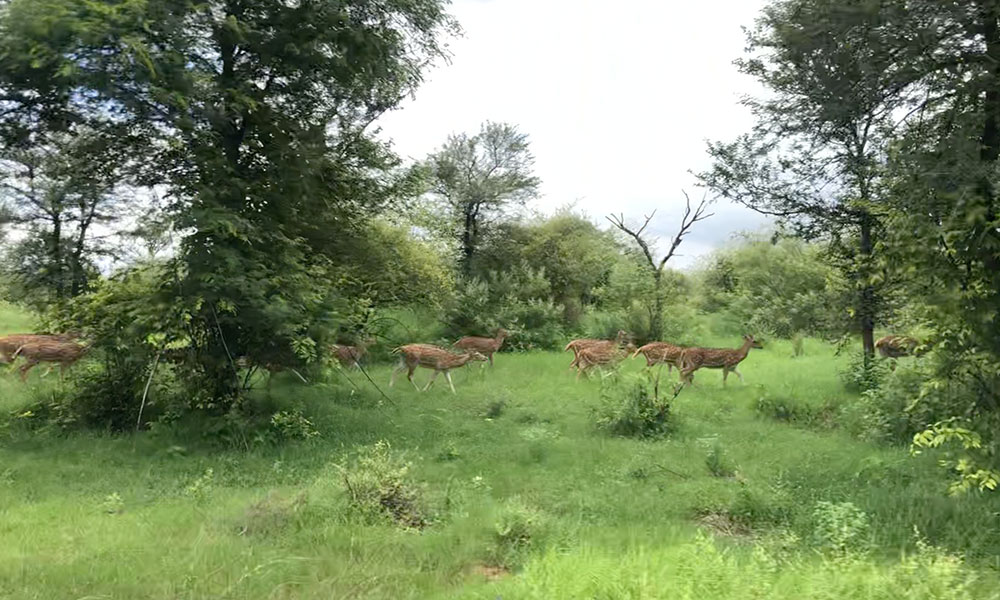
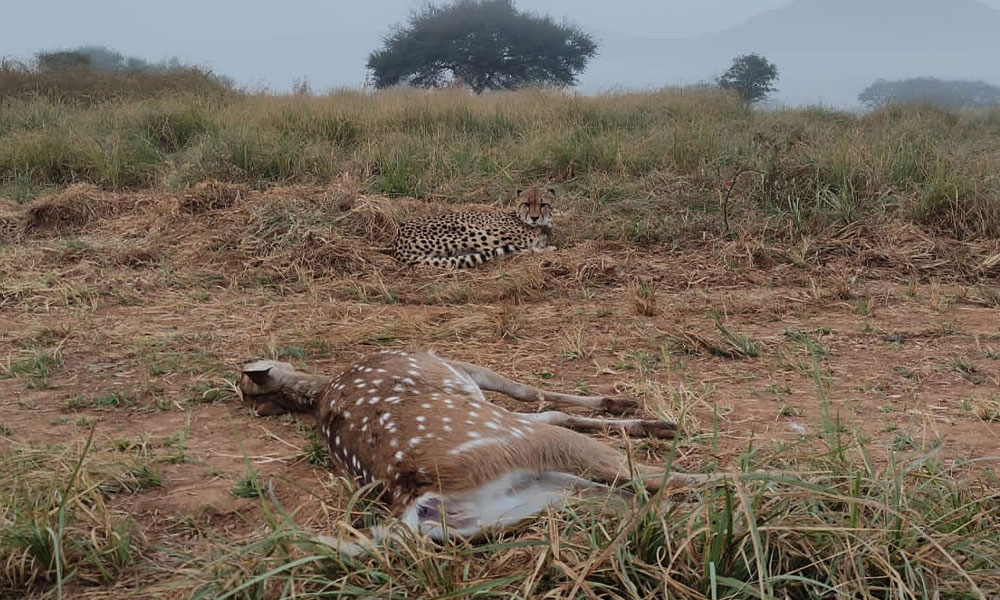
There has been no human-wildlife conflict incidents and the communities surrounding Kuno National Park have been incredibly accepting of having cheetahs living in such close proximity. With close to 90 leopards also residing in the park, there has been no reported conflicts between the cheetahs and other predator species. Cheetahs often face significant threats from other predators like hyenas and leopards, yet the presence of leopards has not deterred the cheetah’s integration back into their former range.
A pivotal aspect of monitoring the reintroduced cheetahs is the use of GPS radio tracking collars. These technological marvels have enabled researchers and conservationists to gather essential data about the cheetah’s movements, habits, and interactions, offering invaluable insights into their integration back into the wilds of India. While concerns have been raised about the potential impact of the collars, their role in the overall success of this reintroduction effort cannot be overstated.
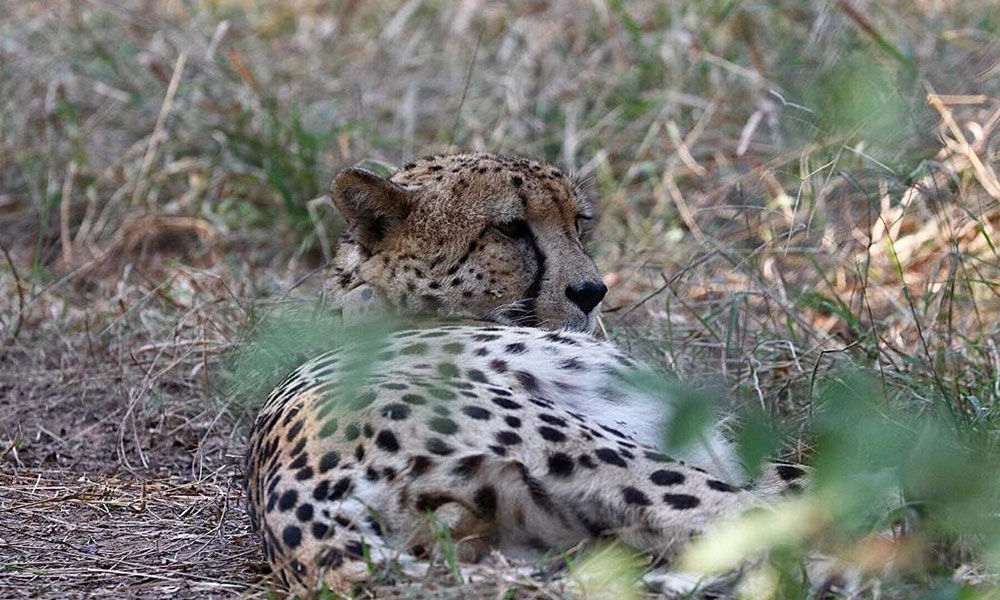
CCF’s Conservation Biologist and Release Specialist, Eli Walker emphasized the significant impact collars have on the study of cheetahs in the wild, stating, “The tracking collars remain critical to the success of the project. Without them, no post-release monitoring is possible and therefore the animals’ progress in the wild of India would not be possible to determine. Additionally, without the collars, post-release management and support of the released cheetahs would not be possible.”
There are limited alternatives to tracking collars and the emergence of a direct replacement for this technology is not imminent. With the safety of cheetahs at the forefront of concerns, CCF’s cheetah release and management experts are helping the Project Cheetah team to address and find solutions, ensuring that when the cheetahs are released again, the risk of collar usage is mitigated.
As we celebrate this extraordinary milestone, it serves as a reminder of the urgency to conserve and protect the natural world. Dr. Marker remarked, “The return of the cheetahs to India is not just about their survival; it is a testament to our commitment to safeguard the web of life that sustains us all. We must recognize that our actions have repercussions that extend far beyond our own lifetimes.” Reflecting on this remarkable journey, Dr. Marker’s words resonate hope: “The anniversary of the cheetah’s return to India is a celebration of the boundless possibilities that emerge when humans unite for nature.”
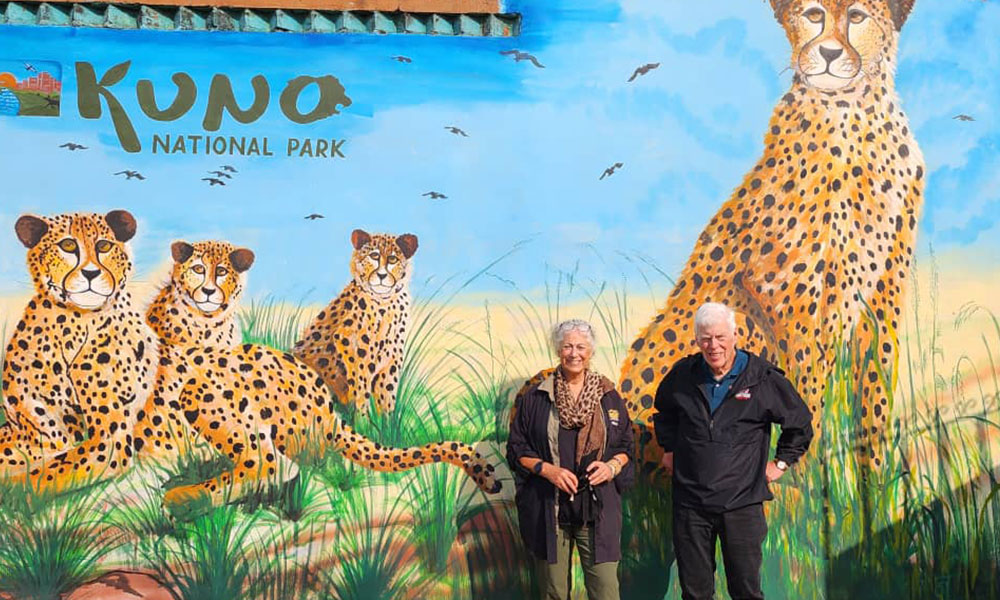
Cheetah Conservation Fund
Cheetah Conservation Fund (CCF) is the global leader in research and conservation of cheetahs and dedicated to saving the cheetah in the wild. CCF is an international non-profit organization headquartered in Namibia, with a base in Somaliland and a partner field organization in Kenya as well as having fundraising operations in the United States, Canada, Australia, Italy, France, Belgium, the Netherlands and the United Kingdom and a partner organization in Germany. Founded in 1990, CCF is celebrating 33 years, making it the longest running and most successful cheetah conservation organization. For more information, please visit www.cheetah.org.
Project Cheetah
The Cheetah Conservation Fund (CCF), in partnership with India’s Madhya Pradesh Forest Department, Wildlife Institute of India, the National Tiger Conservation Authority, and the governments of Namibia and South Africa, embarked on a collaborative reintroduction effort to reintroduce the majestic cheetah (Acinonyx jubatus) back into India’s Kuno National Park, after having been extinct for over 70 years. Project Cheetah’s goal is to establish a viable cheetah meta-population in India that allows the cheetah to perform its functional and historical role as a top predator and to provide space for the expansion of the cheetah population within its historical range thereby contributing to its global conservation efforts.
# # #
MEDIA CONTACT:
For media inquiries, please contact: Teresia Robitschko [email protected] +491782722347 or Dr. Laurie Marker [email protected] +264811247887.
Related Reading

